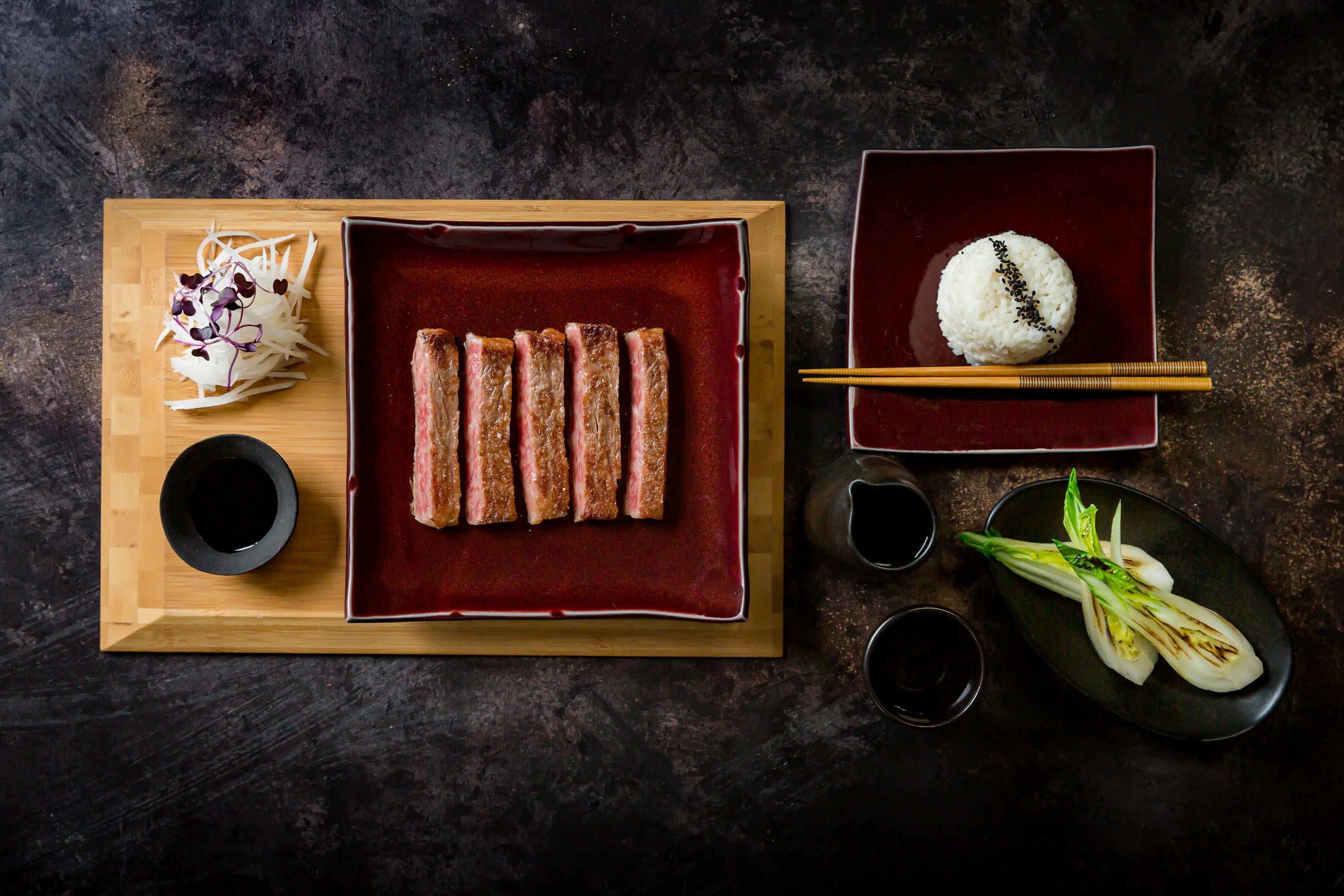
HOW TO COOK WAGYU & KOBE STEAKS
Japan is the only country in the world that registers every head of purebred Wagyu stock. Within four months of being born, calves are given examinations, including paper documentation, individual identification number processing, and recording of any abnormalities. If they meet standardised requirements, at six months old they are issued an official calf registration certificate, serving as proof of purebred Wagyu stock - a heritage created in Japan and refined over generations. The registration traces the calf back three generations through a clearly defined pedigree, including parents, grandparents and great grandparents, eventually leading to the ancestor of all Japanese domestic Wagyu from the 14th century!
Individual Identification numbers trace the Wagyu cattle's place and date of birth, sex breed, maternal parents history, transfer information and locations, fattening period and processing information.
On each cut of steak that we sell there is the fully traceable ID number on the front of the pack. This system also prevents imitation Wagyu from entering the global market.
HOW TO COOK YOUR WAGYU STEAK
All of our Wagyu and Kobe steaks have been cut from fresh in the UK with excess outer fat removed, then ultra-quick frozen to offer the ultimate in freshness and quality. Upon defrosting IQF Kobe or Wagyu steaks, you will find the same fantastic quality and performance as you would a fresh product.
To correctly thaw, remove packaging, place the steak on a plate and lightly cover with cling film and leave in the fridge overnight.
Because of the large intramuscular fat content Wagyu steaks defrost pretty quickly, so if you are in a hurry a 2cm thick sirloin steak can defrost on a countertop in around 45 mins to 1 hour.
When your steaks are thawed remove them from the fridge about 30 minutes before you plan to cook them. Having your Wagyu steak at room temperature lets it cook evenly from the outside in.
Seasoned with just a touch of salt, the best cuisson to enjoy the luxurious texture and sweet, buttery flavour of Wagyu steak is medium-rare to medium.

Sirloin & Ribeye
It's not strictly necessary to grease the pan, unless you are cooking a fillet steak, because as soon as the sirloin/ribeye hits the hot pan it will begin to caramelise while it renders out the delicious intramuscular fat. However, for ease we recommend using our Wagyu fat, available in convenient jars. Simply place a spoonful of this premium fat into the pan, this will ensure even and efficient cooking. To discover more about this fat and its many uses check out the product here.
Preheat your cast-iron skillet or non-stick pan over high heat, season the steak lightly with salt, add the Wagyu fat then add the steak just before the fat starts smoking.
Turn your Wagyu steak often and spoon over the hot fat to aid the caramelisation process. Larger steaks from 500g+ can then be moved to the oven to finish cooking but smaller, thinner ones can be cooked all the way in a pan.
As a guide a 300g medium-rare sirloin steak, placed in a very hot pan after being removed from the fridge for 30 minutes should take approx 3/4 minutes in total, turning and basting frequently.
If you are relying on a meat thermometer for your core temperature then aim for no less than 50°c. Rare wagyu is not favoured as it does not give enough chance for the fat inside the steak to melt into the meat offering far less enjoyment. With the exception of fillet steak it is very difficult to overcook wagyu and even at medium-well it will still be melt in the mouth delicious.
Fillet, Petit Roast & Fillet Mignons
Fillet steak naturally renders less fat when cooking compared to sirloin/ribeye, to prevent singeing the outside of the steak the addition of sunflower/vegetable oil, or for perfect results Wagyu fat, is essential.
Heat a dry non stick pan over a high heat, season the steak lightly with salt, add the wagyu fat then add then the steak just before the fat starts smoking. Reduce the heat slightly, using tongs colour all sides of the steak turning frequently.
Mignons cook extremely quickly so sear for approximately 2 mins per side, rest then serve.
The petite roast and can seared whole then finished in a medium oven, or cut in half and cooked as 2 x fillets or cut into quarters or fifths and cooked as mignons

Resting; always the hardest thing to do but you must let your steak rest for 5 minutes.
A good chefs tip is to cook the steak to slightly under your desired preference by one minute. Allow the steak to rest for at least 10 minutes (it can go cold) then return to a clean hot pan right before serving to heat it through and finish cooking completely then send it to the table sizzling!


